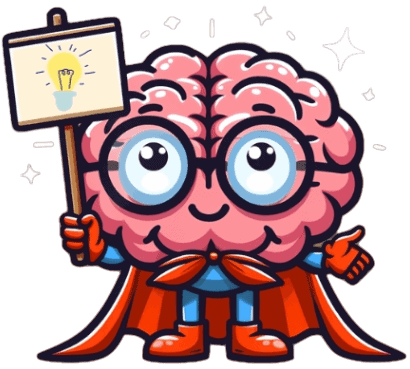
The Unseen Costs of Disorganisation
The Time Trap
We’ve all experienced the frustration of forgotten appointments or the chaos of an unstructured day. This isn’t just a minor inconvenience; it’s a significant drain on your most precious resource: time. Each moment spent trying to recall your next meeting or reshuffling tasks due to poor planning is a moment lost.
The Stress Factor
The mental load of keeping track of numerous tasks and appointments can be overwhelming. This constant mental juggling act is not only stressful but also detracts from your ability to focus on more productive activities.
The Ripple Effect
Disorganization doesn’t just affect you; it impacts those around you. Missed deadlines and forgotten commitments can strain professional relationships and personal connections, leading to a cycle of stress and inefficiency.
The Power of Calendar and Scheduling Apps
Maximizing Time Efficiency
Calendar apps are more than just digital agendas. They are sophisticated tools designed to optimize your time management. By clearly visualizing your schedule, you can identify gaps and overlaps, making adjustments to maximize efficiency.
Streamlined Coordination
Scheduling apps shine in their ability to coordinate between multiple parties. Setting up meetings, syncing schedules, and avoiding conflicts becomes effortless, saving you from the back-and-forth of traditional planning.
The Reminder Revolution
One of the greatest benefits of these apps is their reminder system. Automated alerts ensure you’re always aware of upcoming commitments, reducing the chances of oversights and last-minute scrambles.
The Downside of Not Using These Tools
Missed Opportunities
Without the clarity provided by a scheduling tool, you’re more likely to miss opportunities. This could mean overlooking a potential meeting with a key client or forgetting an important personal event.
Professional Perception
In the professional world, time management is often equated with competence. A lack of organization can lead to missed deadlines and appointments, negatively impacting how colleagues and clients perceive you.
Compromised Personal Life
Your personal life also suffers without effective scheduling. Overlooking family events or struggling to find time for personal pursuits can lead to an imbalanced lifestyle.
The Science Behind Scheduling
Cognitive Load Theory
This theory suggests that our working memory has limited capacity. By relying on external tools like calendar apps, you free up cognitive resources for more complex tasks.
The Psychology of Productivity
Studies have shown that a well-organized schedule can lead to higher productivity levels. The act of planning and visualizing tasks triggers mental processes that enhance focus and efficiency.
Habit Formation
Regular use of scheduling tools can foster positive habits. Over time, this disciplined approach to time management becomes second nature, leading to long-term improvements in efficiency and productivity.
Comparing Traditional and Digital Methods
The Limitations of Paper-Based Methods
While traditional diaries and planners have their charm, they lack the dynamic capabilities of digital tools. They can’t provide reminders, adjust to changes in real-time, or sync with other devices.
The Advantages of Digital Scheduling
Digital tools offer a range of features that traditional methods can’t match. From syncing across devices to integrating with other apps, they provide a level of convenience and functionality that is indispensable in our fast-paced world.
Personalization and Flexibility
One of the key strengths of digital scheduling tools is their adaptability. Users can customize views, set unique reminders, and even integrate with other productivity apps to create a system that perfectly suits their needs.
User Experience and Design
Intuitive Interfaces
The best calendar and scheduling apps boast user-friendly interfaces, making them accessible to everyone, regardless of their tech-savviness.
Customization Options
From color-coding to various view options, these tools offer extensive customization to cater to individual preferences, enhancing the user experience.
Integration Capabilities
The ability to integrate with other apps and platforms is a game-changer. This interconnectedness ensures that your scheduling tool is a central hub for all your planning needs.
Overcoming the Hurdles of Adoption
The Initial Learning Curve
Adopting any new tool involves a learning phase. However, the intuitive design of most scheduling apps ensures that this period is short and the benefits are quickly realized.
Habit Formation Challenges
Consistency is key when integrating a new tool into your routine. It may take some time to form the habit of regularly using a scheduling app, but the long-term benefits are well worth the effort.
Finding the Right Tool
With a plethora of options available, finding the right app can be daunting. It’s important to explore different options and choose one that aligns with your specific needs and preferences.
The Future of Scheduling Technology
Advancements in AI and Machine Learning
Future developments in AI and machine learning promise even more sophisticated scheduling tools. These advancements could lead to more personalized and predictive scheduling, further enhancing time management.
Integration with Emerging Technologies
As new technologies emerge, the potential for further integration with scheduling tools is vast. This could include everything from smart home devices to advanced project management systems.
The Role of Virtual and Augmented Reality
Emerging VR and AR technologies have the potential to revolutionize how we interact with our calendars. Imagine a world where your schedule is not just a list on a screen, but a fully immersive 3D experience.
Things Worth Considering
Balancing Technology with Mindfulness
While scheduling apps are powerful tools, it’s important to balance their use with mindfulness practices. Ensuring that technology serves you, rather than controls you, is key to a healthy relationship with digital tools.
The Importance of Flexibility
While maintaining a schedule is important, so is flexibility. Life is unpredictable, and the ability to adapt is just as crucial as the ability to plan.
The Value of Downtime
Finally, it’s important to remember that not every moment needs to be scheduled. Allowing time for relaxation and spontaneity is essential for a well-rounded life.






Leave a Reply